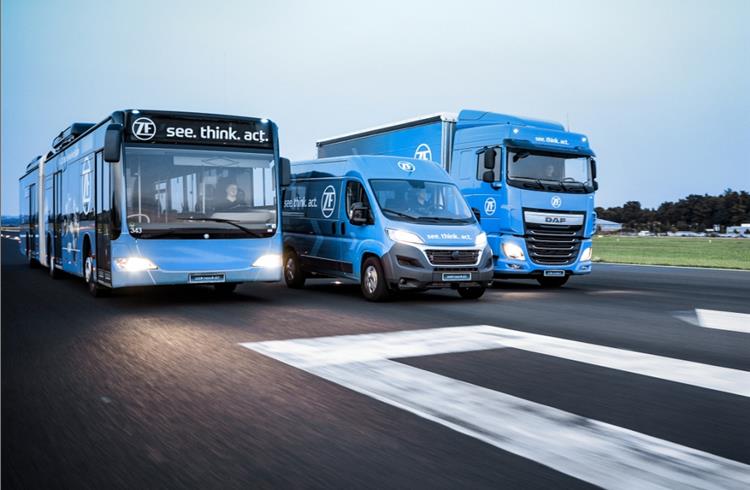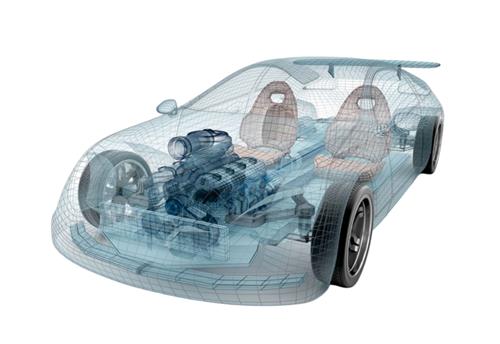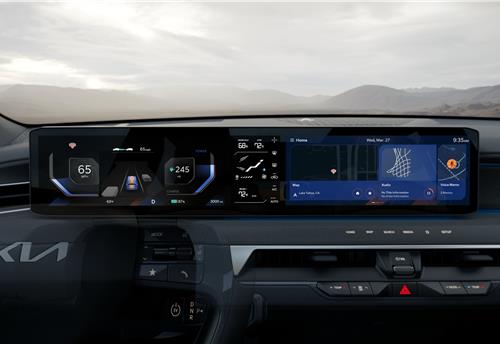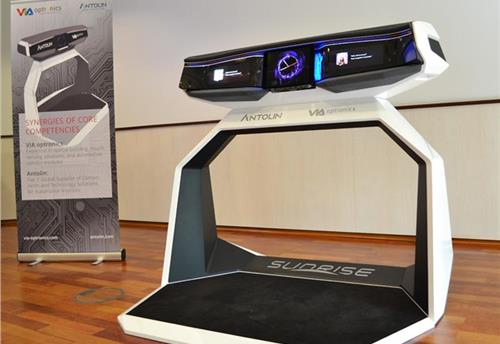ZF bets on electrification and autonomous tech for CVs, to invest 12 billion euros
ZF is betting on autonomous driving and connectivity to simplify logistics processes. It is developing an autonomous electric delivery vehicle and intends to invest more than € 12 billion in the areas of e-mobility and autonomous driving in the next five years.
German Tier 1 supplier ZF says the logistics industry is overtaking the passenger car sector when it comes to the automation of driving functions. The company says it is supporting this trend with innovative concepts and major investments.
The company cites the example of commercial vehicles that are intelligently connected thanks to its production-ready technology, which are and equipped with autonomous driving functions capable of independently performing all logistics tasks or assisting package delivery drivers.
ZF says the autonomous delivery trucks will make package deliveries along the ‘last mile’ more efficient – which will in the future help to deal with rising delivery volumes while reducing traffic in city centres. E-mobility and autonomous driving are strategically very important for ZF and the company intends to invest more than 12 billion euro (Rs 10,223 crore) in these areas over the next five years.
In line with the theme of ‘Smart Logistics’ at IAA 2018 Commercial Vehicles in Hannover, the company has bundled its technologies and – through automation, networking and electrification – has created attractive solutions for the complete logistics chain. Autonomous driving will prevail more quickly in the commercial vehicle sector due to reduced vehicle operating costs while also helping to improve safety and efficiency.
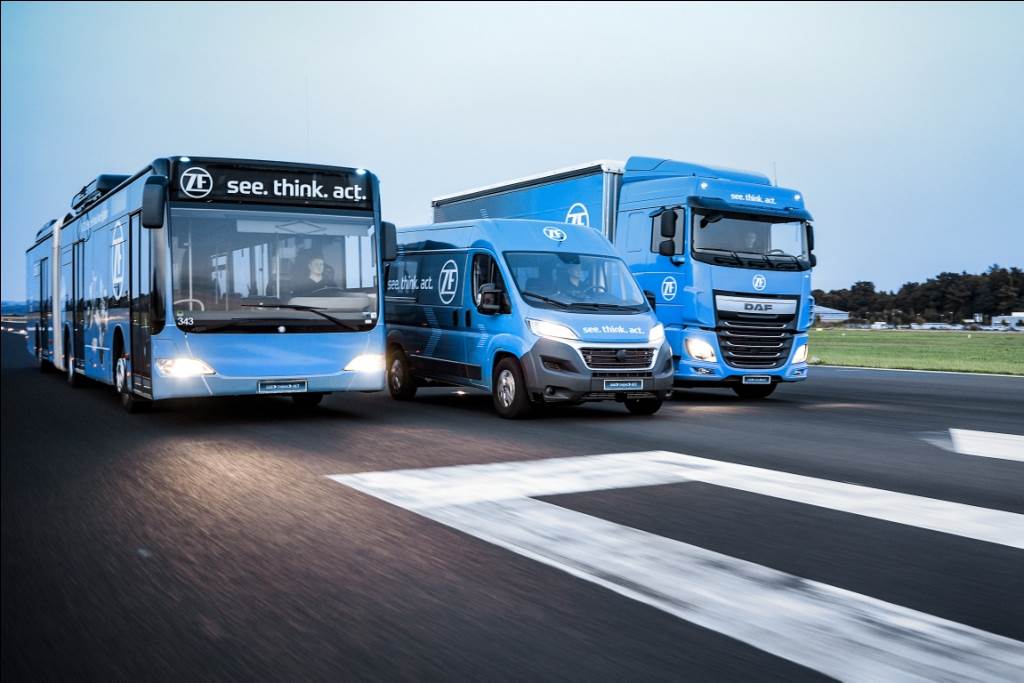
Wolf-Henning Scheider, CEO, ZF Friedrichshafen, said: “We are revolutionising the 'last mile' so that packages can be delivered more cleanly, safely and on time. For this reason, we are working together with partners and customers to further develop our concept ready for series production within the next two years.
"In order to quickly offer the market our systems expertise in the form of innovative and practical solutions, we will be investing more than €12 billion in e-mobility and autonomous driving alone over the next five years. Despite current challenges in the markets and increased spending for developing new technologies, ZF remains on course. We will achieve our goals for the current year which include our revenue targets, investment increases and reducing debt,” continued Scheider.
ZF Innovation Van
The ‘last mile’ in parcel logistics is an attractive use case. ZF’s Innovation Van has demonstrated how intelligent networking, autonomous driving and an all-electric drive support parcel delivery services in meeting the requirements of the future – especially the rising delivery volumes and the demand for individual delivery. At the same time, such vehicles will also help to reduce emissions and traffic in city centres. This approach has attracted interest within the industry.
Scheider said: “We are already in concrete negotiations with several customers.” ZF’s Innovation Van is based on its high-speed super computer ZF ProAI, as well as its sensor set consisting of camera, radar and lidar.
The all-electric delivery truck is equipped with level 4 autonomous driving functions and is designed to independently manoeuvre through city centres, stay in its lane even if without road markings, recognise both traffic lights and road signs and react to sudden hazardous situations. In addition, the Innovation Van can detect and drive around obstacles such as double-parked vehicles.
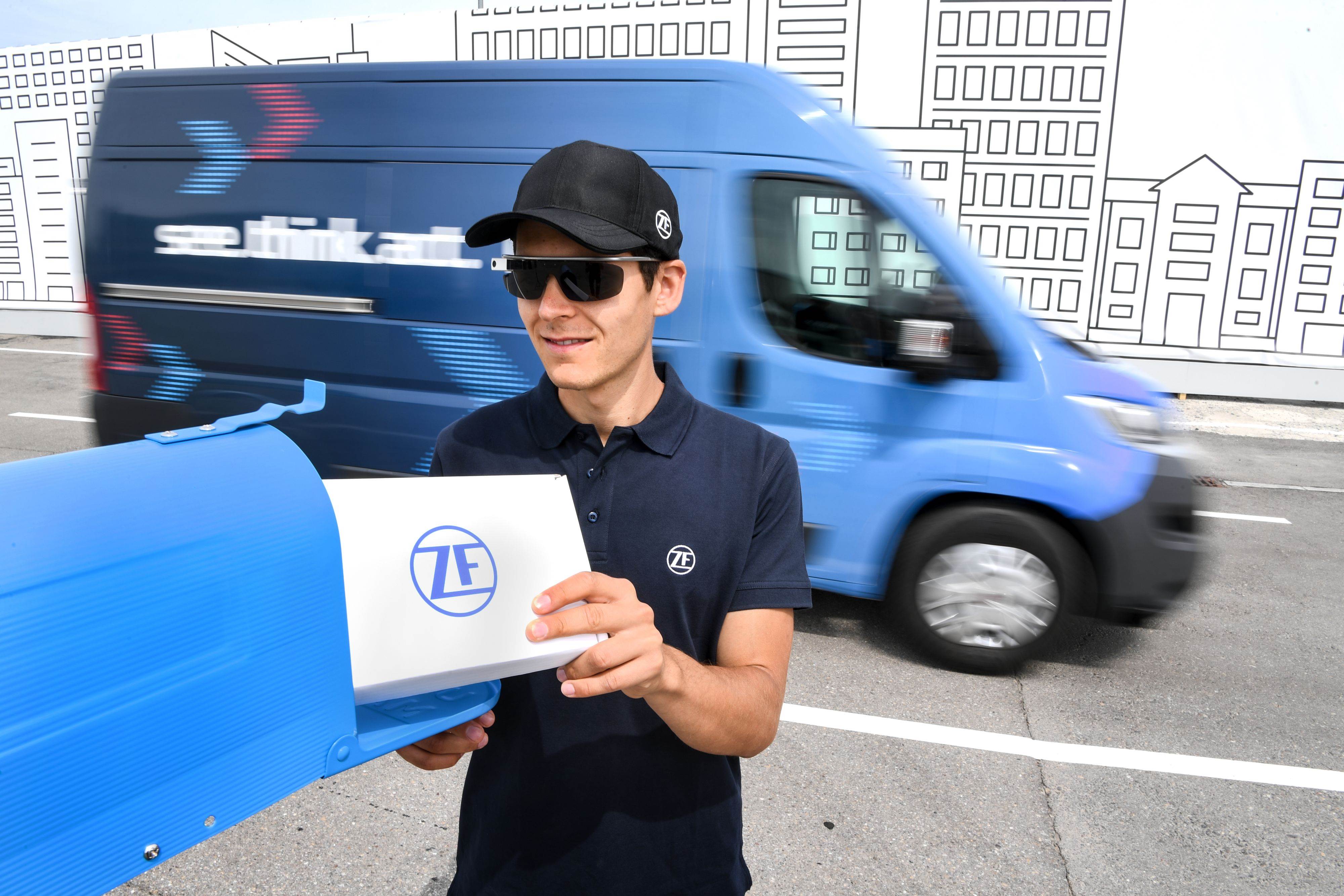
The Follow Me function – which utilises a tablet-based remote control –is particularly helpful for drivers. If two addresses are close enough that it makes more sense for the delivery driver to stay on foot, the Innovation Van will follow the driver as if on a virtual leash. In addition, if there is no parking available at a certain address, the driver can send the vehicle ahead to the next stop where it will look for a parking space on its own. This will also help to avoid traffic jams in future caused by delivery trucks which are often double parked.
The company’s two latest world premieres – the Innovation Truck and the Terminal Yard Tractor – show how it is responding to key freight challenges. These vehicles can autonomously manoeuvre swap bodies, trailers and containers. The driverless, manoeuvrable vehicle functions improve efficiency, speed and environmental-friendliness at depots, company terminal yards and container ports. On top of that, the company says it can help to reduce accidents and property damage. Lastly, such vehicles can also help address the constantly growing shortage of skilled workers in the logistics industry.
“Driverless transport vehicles and automated functions will play a significant role particularly in zoned areas like company terminal yards, forwarding company depots or air and sea ports,” continued Scheider. “In the near future, we will be seeing more autonomous vehicles in such zoned areas faster than on public roads. The cost, safety and efficiency benefits for customers will make a difference here.”
Electrifying commercial vehicles
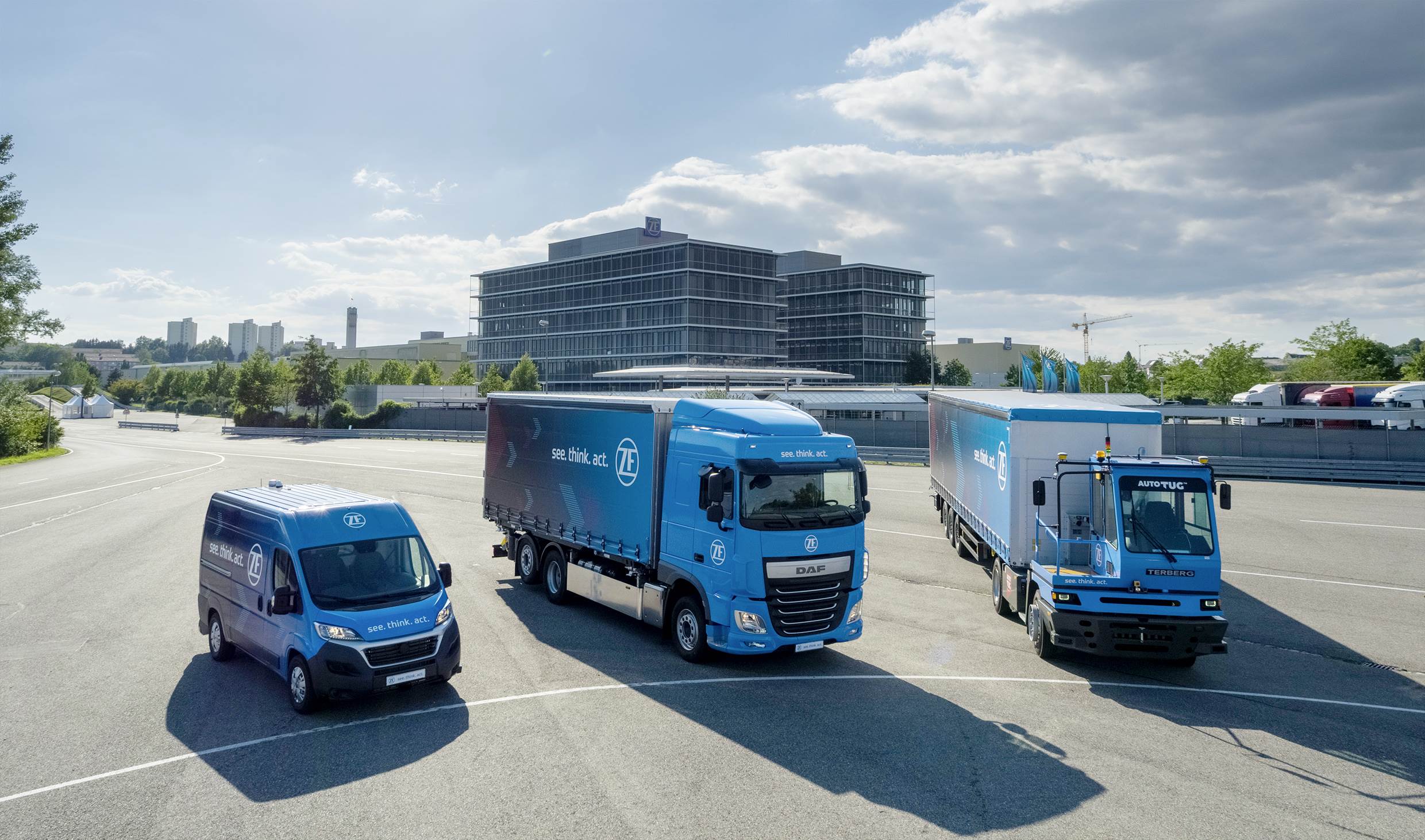
The smart logistics approach from ZF also covers zero local emission drives for all vehicle classes. The German company says air pollution in city centres should be considerably reduced, and as a response to international requests for quotations for electrically powered buses, ZF - as European market leader - has received orders for more than 1,000 of its AxTrax AVE electric portal axles. These will soon be contributing to 60 million zero-emission passenger kilometres each year in cities like Los Angeles, London or Stuttgart.
ZF is also accelerating the electrification of the drive in other commercial vehicle segments. For instance, it has received a volume-production order for its new CeTrax electric central drive which is suitable for both buses and trucks, for deployment in shunting vehicles. The electric axle drive system for light commercial vehicles will go into volume production in mid-2019.
The company says it has also proven to be a pioneer in the electrification of heavy-duty trucks. For the first time, a field test with the TraXon Hybrid commercial vehicle transmission, which was jointly conducted by ZF and DAF, it demonstrated the benefits of electrification in heavy trucks. With all-electric manoeuvring as well as numerous hybrid functionalities, a potential fuel saving of between five and seven percent can be achieved. With this, ZF is showing the potential of electrification with heavy commercial vehicles.
RELATED ARTICLES
Marelli Talbros Chassis Systems wins Rs 1,000 crore business from European OEM
The order, to be executed over an eight-year period, is for the supply suspension arms tailored for both conventional in...
Kia launches customised NBA display themes for North American market
Display Themes is a customised service that supports a personalised vehicle experience, allowing users to customise the ...
Antolin and VIA Optronics unveil versatile vehicle cockpit concept
The Sunrise vehicle concept cockpit, which is engineered for seamless transitions between manual and autonomous driving ...





 By Autocar Pro News Desk
By Autocar Pro News Desk
 19 Sep 2018
19 Sep 2018
 5506 Views
5506 Views



